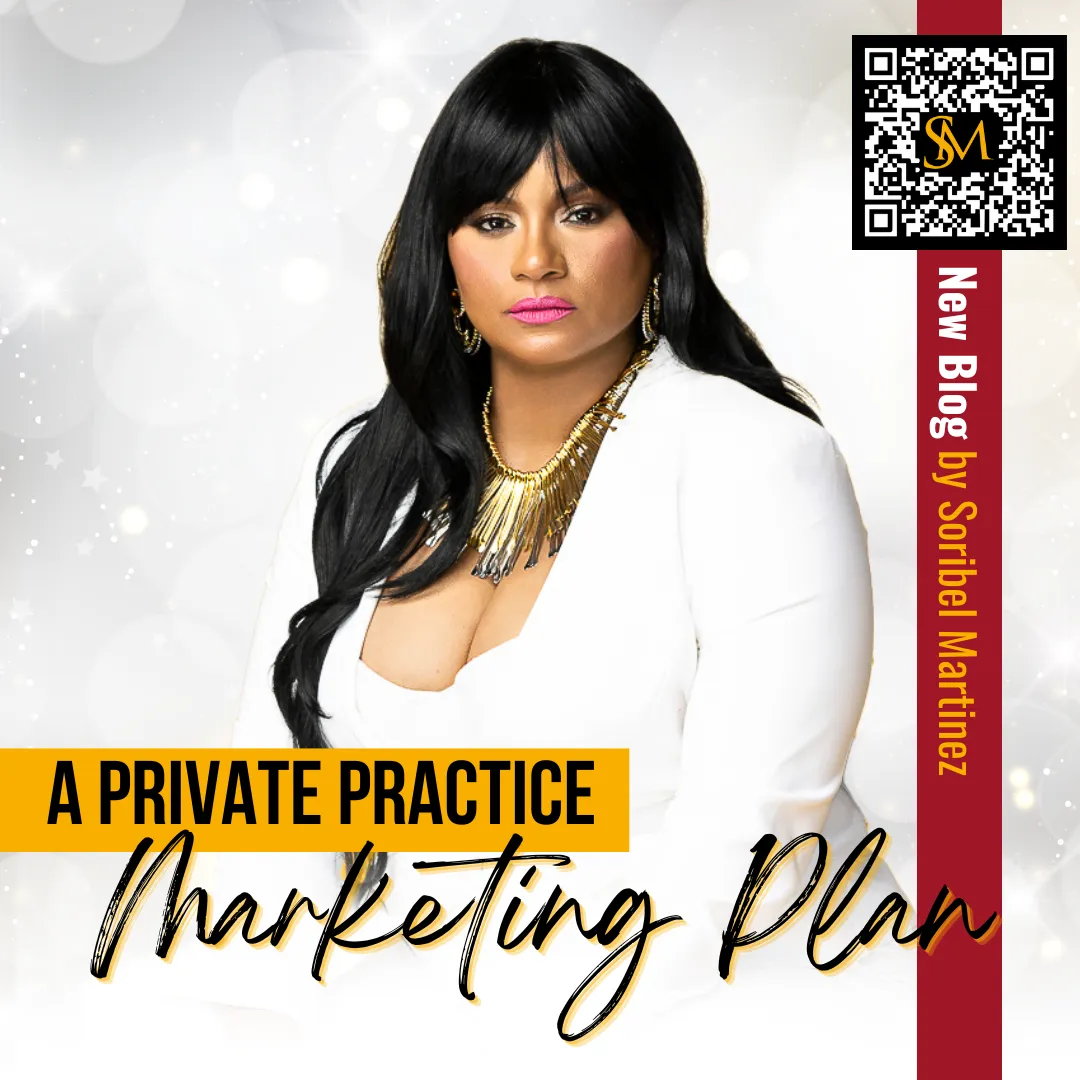How to Create a Marketing Plan For Your Mental Health Group Practice

Marketing has come a long way since the days of putting an ad in the local phone number directories. Today’s medical and mental health professionals in private practice have an array of marketing plan options to connect with new clients and gain referrals. These options range from traditional methods to leveraging professional services. All these methods can be beneficial as you construct your private practice marketing strategy to grow your business and broaden your reach.
Therefore, in this blog, we will explore the following:
- Overcoming hesitation and fear
- Questions to guide your planning
- Effective Traditional Offline Marketing Strategy
- An Engaging Social Media and Online Presence
- An Efficient Email Marketing Campaign
- Leveraging Professional Services for Content Creation & Branding
- Implementing Your Private Practice Marketing Plan
Overcoming Hesitation and Fear as a Group Practice Owner
Marketing can be a complex topic because of the emotional response some people experience. It may feel uncomfortable to market yourself, seeming like too much of a “look at me” endeavor. You may feel selfish or manipulative as you try to convince people to buy your services. You may feel awkward about the competitive nature of marketing as you seek to convince potential clients that you are their best option. You may imagine that people will judge you for being so self-centered.
If this describes you, here are some practices that can help:
Get in touch with those feelings. Determine why you feel that way. Have you had bad experiences? Has someone convinced you that marketing is wrong or distasteful? Once you understand where those feelings originate, you can address them.
Remember your mission. You became a healthcare professional to help people. The simple fact is you cannot help if they don’t know you exist. People are out there who need your help. Your medical or mental health services could change their lives. Don’t let your feelings rob them of the knowledge that helping is your mission.
Think of how many people you could help. Not only do you want to help people, but you want to help as many as possible. This is the reason to embrace all forms of marketing. Helping as many people as possible means reaching as many as possible through your marketing strategy.
Questions to Guide Your Group Therapy Practice Marketing Planning
There are a variety of methods to market your business. All will be beneficial, but you may emphasize some methods over others, depending on goals. Marketing strategies need to change as your business changes. As you move from starting a private practice to growing that business and expanding your services, regular evaluation of our goals and strategies is crucial. Consider the following questions as you evaluate your marketing plan:
- Who do you want to target? (Think about age group, gender, profession, life stage, etc.)
- What do you want your hourly rate / pricing to be?
- Where will you offer your services or sell products? Will you have a location or work online only?
- What is the potential market for your business in your area?
- What existing services and products are already in the area you plan to cover?
- Is the marketplace crowded?
- What skills and professional credentials do you have or can you develop?
Effective Traditional Offline Marketing Strategy to Consider for Your Therapy Business
In a world of digital media, some may assume that traditional marketing efforts are outdated and a waste of time and money. This is not the case. Traditional offline marketing can be an effective element of your strategy.
This could include:
- Print advertisements
- Direct mail marketing
- Connecting with area businesses and looking for partnership opportunities
- Sending introduction letters and brochures to related businesses, i.e., a mental health professional may send promotional items to doctor’s offices and medical providers
- Research where your ideal clients are and spend time there
- Find conferences and network events for your niche and attend. Hand out business cards and brochures to make connections
Marketing is about making a connection. The more opportunities you have to connect with new clients, potential clients, and referral sources, the faster you will meet your goals and create the massive impact you desire.
An Engaging Social Media and Online Presence to Grow Your Group Mental Health Practice
Consider digital marketing as your virtual front office and waiting room. It is where people will form first impressions, gain information about your services, assess the quality of your business, and develop a comfort level with you and other clinicians and professionals on your staff.
As you develop your online marketing strategy, make sure you follow these fundamental principles:

- Develop a professional website design. Secure your own domain name related to your business and then develop a great website. If you do not possess the ability of web design at a high level, hire a professional.
- Provide online education. Marketing is more than an exclusive focus on sales. Free online educational services can assist your mission of helping people and demonstrate exactly the kind of help you can provide. Education demonstrates to the customer how they can benefit from your services. This can include:
- Blogs
- Website Specialty Pages
- Podcasts
- Webinars
- Utilize Search Engine Optimization (SEO). When writing web pages and blogs, be sure to utilize SEO. This is the use of specific words and phrases so that search engines notice your blog, article, or webpage. This helps potential clients find your online marketing rather than have it lost in the sea of internet information. This may require purchasing writing software or hiring a professional writer.
- Develop a social media presence. Facebook ads, Instagram ads, Linkedin, and other social media can help spread your message, provide educational tips, and direct clients to resources.
- Develop an email marketing campaign. Email marketing campaigns can be a cost-effective and efficient way to connect through newsletters or educational materials. Much like a mail campaign using traditional mail, email campaigns need to be well presented, target the right people, and be informative. When designing your email campaign, follow these general guidelines:
- Define your target audience.
- Build your email list.
- Create your email content.
- Design your email template.
- Set up your email automation.
- Measure your results.
Social media, email campaigns, and online marketing allow clients to learn your areas of expertise, the services you provide, and grow comfortable with you and your practice before ever stepping into your office. Take advantage of this powerful resource to grow your business.
Leveraging Professional Services for Content Creation and Branding for Your Group Therapy Business
Hiring professional services has already been mentioned, but it is worth exploring in more detail. As a healthcare professional, you need to spend much of your time providing healthcare. As a business owner, you are called upon to perform many duties. Still, the time allotment and your level of expertise come into question.
Leveraging professional services can be the solution you need to have stunning content and branding while you focus on serving clients. You can receive valuable assistance through the following:
- professional writing services
- content creation services
- online copywriting services
- branding services








